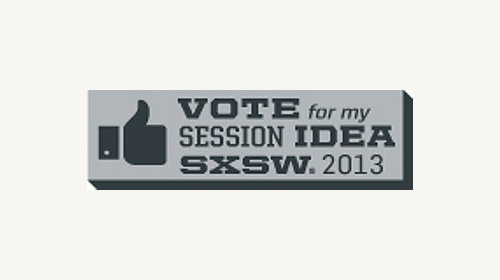
The ACLU is hoping to be at South by SouthWest next March, and we need your help! We’ve submitted four panel pitches (one, two, three and four) for SXSW Interactive, and there are two days left for the public to vote for and comment on the topics we’ve proposed.
Community voting and commenting are scheduled to close at 11:59 pm CT on Friday, August 31, so head on over to PanelPicker to cast your vote now! SXSW Interactive will account the panels that have been accepted on October 15, so check back to see if our submissions were picked.
Can I Record? The Fight Over Photographers’ Rights
SPECIAL FEATURE
> A Guide to Photographers' Rights

> Learn More: Filming and Photographing Police
For the first time most people now carry a camera with them at all times – in their smartphones. This has sparked a battle: more people are recording police encounters and infrastructure such as buildings, bridges, and trains. In response, law enforcement and security are routinely pushing back: ordering people to stop recording in public places, sometimes harassing and arresting those who fail to comply. The ACLU has filed lawsuits over this issue all around the country.
In this talk, ACLU Senior Policy Analyst Jay Stanley will examine some of the dramatic incidents that have taken place, explain the state of the law – when you clearly have the right to take photographs or video, when you do not, and where the law is not yet clear – and, demonstrate two new ACLU smartphone apps that make it easier to record police encounters and hold officers accountable for any unprofessional behavior.
Vote for this panel now!
Unblinking Eyes: License Plate Readers and Privacy

You may not have seen them, but they have seen you. And they have not forgotten. Automatic License Plate Readers began as a limited technology to collect unpaid parking tickets and locate stolen vehicles. But today they are rapidly becoming one of the most pervasive surveillance tools in the US, monitoring and storing information not just on all of us. The police argue that they can collect, store, share and analyze this information for any reason—or for no reason at all. In July 2012, ACLU affiliates around the country filed hundreds of public records requests to uncover how ALPRs are being used.
ACLU attorney Catherine Crump will host a briefing on how the technology works, what the ACLU has uncovered about how the police are using it to monitor and record our movements, and what it means for our civil liberties.
Vote for this panel now!
How to Keep EFF & the ACLU Off Your Ass
Failing to build in privacy protections is the quickest way to put your company smack in the middle of a PR disaster. When the privacy shit hits the fan, tech reporters want to know what privacy watchdog organizations like the Electronic Frontier Foundation and the American Civil Liberties Union think. If you messed up, we’re going to have something to say and we don’t do kid gloves. The good news is that so many of the privacy-related PR disasters could have been prevented with some simple advance planning.
The ACLU of Northern California’s Rebecca Farmer and EFF’s Rebecca Jeschke are two of the top people that tech reporters call for comment when there’s a new product that has everyone talking. They will tell you how to plan ahead to avoid privacy & PR nightmares, saving your company time and money while enhancing reputation and building customer loyalty and trust.
Tech Law: Make It, Don't Break It
At last year’s SXSW Interactive, Internet users cheered the defeat of SOPA and PIPA -- and the companies who helped cause their downfall. But technology remains on the agenda for state and federal lawmakers, and decisions made in DC and elsewhere can have a huge impact not only on your users' rights but on your ability to innovate and build your product.
Rather than waiting for a bad law to come around and then being forced to deal with it, what can you do to ensure that the laws that are passed protect you and your users?
On this panel, the ACLU of Northern California’s Chris Conley will join Aaron Perzanowski from Wayne State School of Law and Leah Belsky from Kaltura to review cases where companies have worked to create better laws and policies, evaluate the reasons these efforts succeeded or failed, and examine the costs and benefits of taking part in policy discussions. We'll hear first-hand from companies who have put time and resources into fighting for better tech policy, as well as advocates and academics who will share their perspective.
We’ll keep you posted on our SXSW goings-on; stay tuned! And if you aren't already, subscribe to the ACLU’s Free Future blog and follow our Demand Your dotRights digital privacy campaign on Twitter and Facebook to stay informed on our work to protect civil liberties in the digital age.
Learn more about civil liberties in the digital age: Sign up for breaking news alerts, follow us on Twitter, and like us on Facebook.

